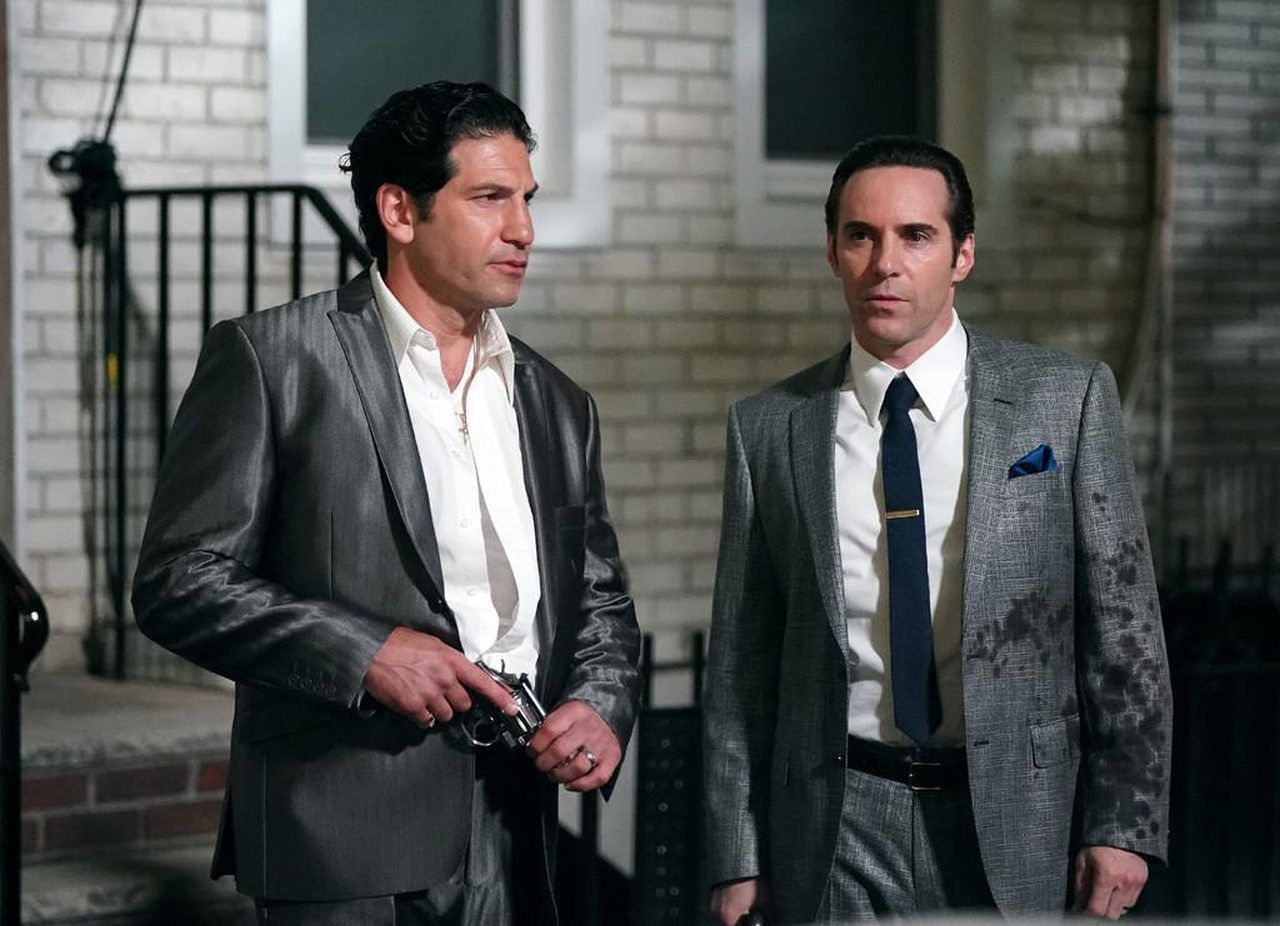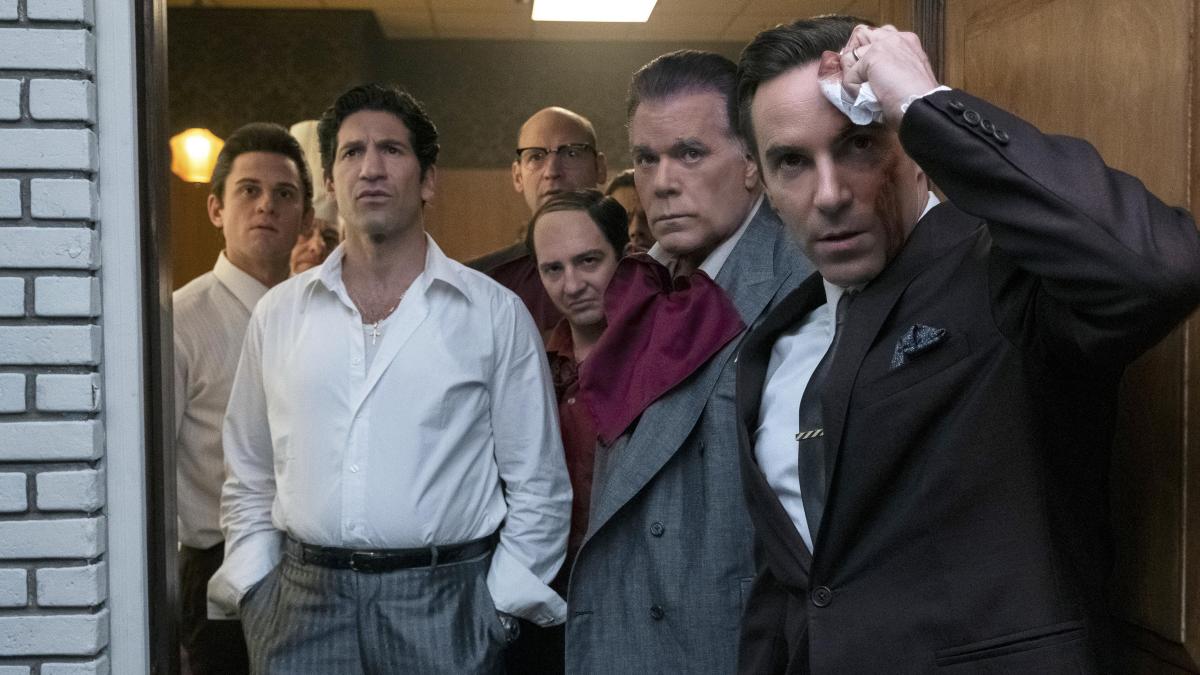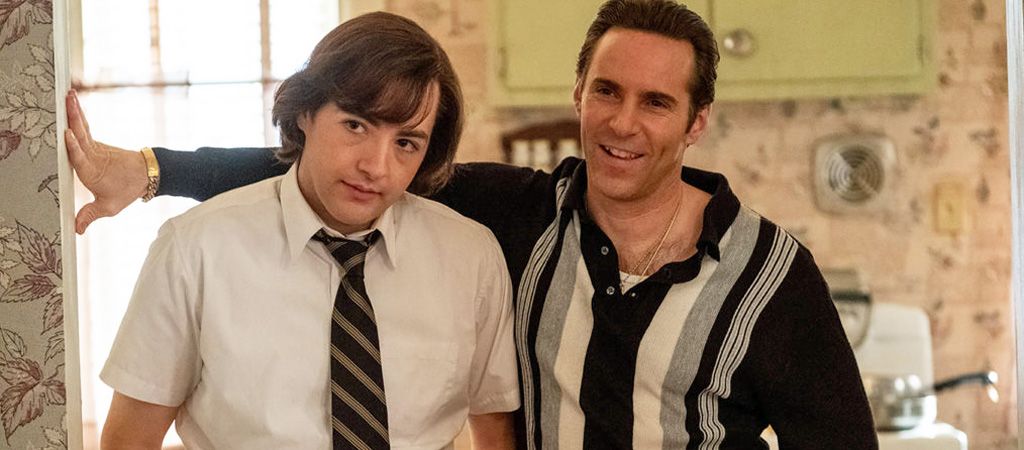
MOVIE REVIEW: The Many Saints of Newark
I may quite be the most casual Sopranos viewer that you are likely to find. I’ve only ever had a small interest in mobster films, though I’ve seen the Godfather films and a few others in that vein. I watched the show only occasionally back when it was on, and not that much even recently. Still, looking back on The Sopranos now, it was an inspired idea—a show that explored the ramifications of modern psychology on the mafioso family crime drama. The complicated family relationships, their conflict with their business interests, all tangled with modern psychodrama, is a compelling idea for a series, and quite possibly why Tony Soprano remains such an enduring character in TV history. Still, it wasn’t until The Many Saints of Newark, the prequel to the series, that I became truly drawn into the lives of the DiMeo crime family.
The Many Saints of Newark is an interesting title for many reasons. The title refers to the Moltisanti family, which literally translates to “many saints”. But it also works on a literary level as well, focusing on Gentleman Dickie Moltisanti, a man that Tony Soprano sees as a saint. Dickie’s son, Christopher Moltisanti, looked to Tony the same way. Tony’s mother Livia likewise thought of her husband as a saint. This movie addresses the way people look up to others, asking what the measure of a “good man” is, while showing the darkest side of even the best among the DiMeo crime family. Likewise, the movie also contrasts the idea of faith with the baser urges of the criminals in Tony Soprano’s infamous family. This is a film that explores the worst in even the most admirable men, and no character embodies that more than Gentleman Dick, the main character of the film.

Up to this point, Dickie Moltisanti had been regarded as a legend within the underworld, a man that Tony Soprano had admired in his youth. However, the movie shows that under that veneer of respectability and charm, Dickie was a fatally flawed man. In fact, this film portrays him in many ways as a tragic though brutal character struggling with the burden of his own weaknesses. Dickie appears to have everything together—he’s a suave, charming gentleman who is competent and commands the respect of his dysfunctional family. The film gradually peels away those layers to show a man who is driven by lust for his father’s new younger wife and who is unable to control his repressed, murderous rage. Dickie is ethically warped, taking more offense at being caught by his wife than at the idea of seducing his father’s wife. He inherited the capacity for brutal violence from his father, Hollywood Dick, but struggles with guilt after his rage turns to murder. Gentleman Dick is every bit the fascinating character that his nephew Tony is, and even when he meets his expected tragic end, it’s not an end I wanted to see happen. I came away wanting to see more of this character, all while knowing that this is the natural end his own choices have brought him to, and that’s the sign of a brilliant character piece.
At the same time, the story is an ensemble, even though the focus is on the life and crimes of Gentleman Dick. Even coming in as a relative newcomer to the world of The Sopranos, the film makes it clear who the characters are and what is happening within the narrative. The story is just as much about the early years of Tony Soprano and how he was created by the deeply broken family that he belongs to. Whether it’s his unsupportive and domineering mother Livia, his absent criminal father Johnny, or his insecure and conniving uncle Junior, all of these figures from the Sopranos TV show influences the man that Tony Soprano eventually becomes. We also see the family relationships that made Dickie who he became, especially his abusive father and murderer uncle. More than that, the story centers around the relationship between Dickie and his nephew Tony, showing how their friendship sparked Tony’s own path to darkness. Tragically, it is Dickie’s decision to keep Tony away from his own life and failures that prompts Tony to make the same mistakes. It’s even possible that Tony’s relationship with Dickie’s son Christopher hints at what might have happened to Tony if Dickie hadn’t met his cruel end by the finale of the film. The writers wisely show believable consequences to the violent lives of mobsters, showing that there are no saints in organized crime, just horribly broken and flawed men who turn on each other at the end. If this is the point that director Alan Taylor, writer Lawrence Konner, and writer/creator David Chase hoped to make, then they did so effectively.

The cast of this movie is singularly impressive, especially given how difficult it is to recast roles as iconic as the Sopranos. Though I was not aware of Alessandro Nivola before, I suspect he will become a much larger name after this film. His natural charm and presence serves the character of Gentleman Dick Moltisanti quite well; he is likable but also capable of reaching some truly dark and horrible places in this film. He has a classic Old Hollywood look that serves him well in this role, doubly so given that this is a period piece. Michael Gandolfini took a very difficult challenge in taking the role that made his late father James a TV legend, but he pulls it off extremely well. The younger Gandolfini has the right look for a younger Tony Soprano, but he also captures the personality and the mannerisms of his father’s portrayal. I would very much love to see Michael Gandolfini return for a sequel at some point, hopefully see him stretch himself even further. Leslie Odom Jr. is a rising actor of late, delivering a very strong performance as Harold McBrayer, Dickie’s button-man turned nemesis, and he is delightful to watch throughout the film. Vera Farmiga is an actress that has impressed me in recent years, especially as Lorraine Warren in the Conjuring films. Jon Bernthal is an interesting choice for Johnny Soprano, given that he’s best known as the Punisher in the Netflix series. However, he turns in such a good take as Tony’s father that it’s easy to forget that. However, the most inspired casting choice is Ray Liotta as Hollywood Dick Moltisanti; Liotta is well known for performances in gangster films like Goodfellas and even voicing mobsters in the Grand Theft Auto series. Although his involvement in the film is brief, Liotta makes a powerful impact in the film, and he perfectly captures the uncontrolled rage of the Moltisanti patriarch. There are no weak performances from any of the major players in this movie, and all of them line up well with their TV counterparts in The Sopranos from what I’ve seen.

If I have any issues at all, it’s that I feel that certain loose ends are left unresolved, especially the fate of McBrayer. Hopefully this means that a sequel to Many Saints of Newark is in the works, where see the rise of Tony Soprano and presumably the death of Harold. Still, if my worst issue with this film is wanting to see more, then the movie did its work effectively, and I can’t fault that at all. Whether you’re a classic Sopranos fan or someone new to these characters, Many Saints of Newark is an excellent gangster film that is engaging and leaves a taste for more. This is the rare modern recast project that works, mainly because of its deep and involved story as well as its strong casting choices. As it is, it’s been a pleasure to see the return of the broken but fascinating Soprano family again.
Score: 4.5/5
Director: Alan Taylor
Writers: David Chase and Lawrence Konner
Cast: Alessandro Nivola, Leslie Odom Jr., Michael Gandolfini, Vera Farmiga, Jon Bernthal, Corey Stoll, Ray Liotta, Michael Imperioli, Michaela De Rossi
Author Profile
- Steve Sellers had been a fan of superheroes ever since Superman: The Movie. But it took the JSA, the Legion of Super-Heroes, Dragonlance, Lord of the Rings, Twilight Zone, and Chris Claremont's legendary run on the X-Men to make him a writer and a longtime fan of comics, fantasy, and science fiction. Steve is the co-creator of WHITE DRUID & MICHAEL NERO and GUARDIANS OF ELAYIM for Omen Comics, and he is also the creator of BLITZ and SHOCKWAVE for Revelation Comics (an imprint of Omen Comics).










